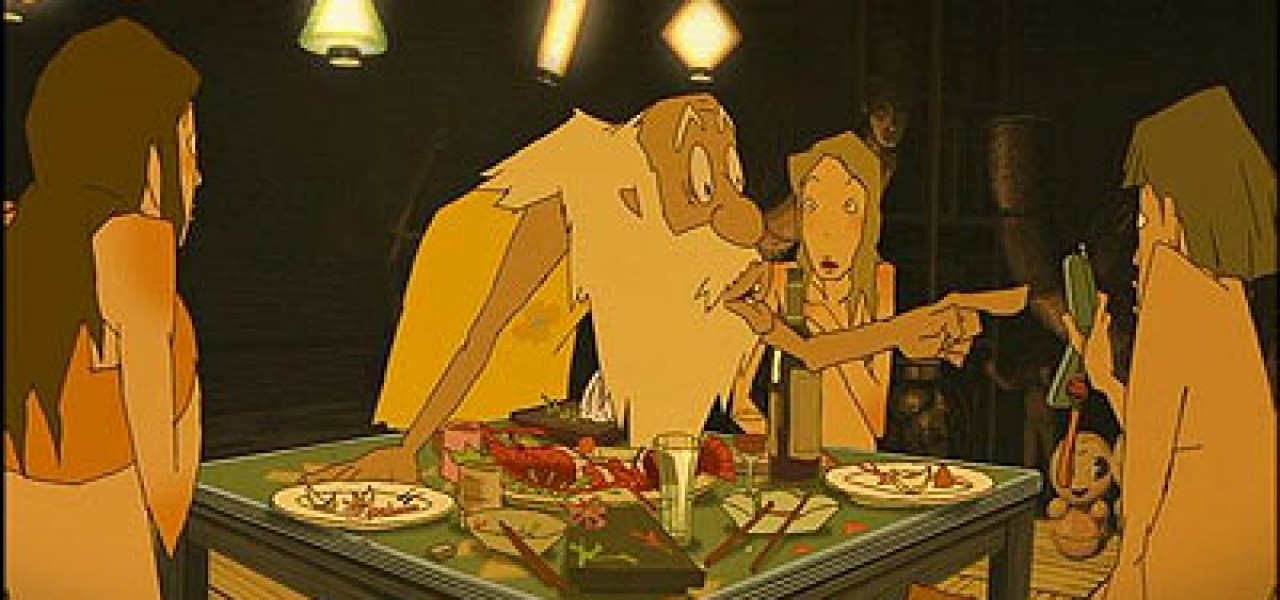
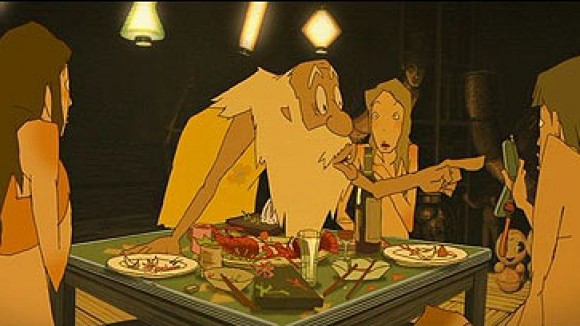
REVIEW: MIND GAME
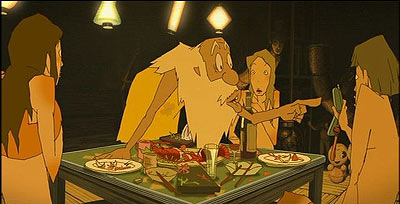
It’s not often that I get excited about an animated feature, particularly a Japanese animated feature, but I’m really eager to check out Masaaki Yuasa’s MIND GAME. The film debuted in Japan last year to tremendous critical praise (both from industry artists and the media) though that didn’t translate to much box office success. (The film’s official website and trailer can be found HERE.) All I’ve seen so far is the trailer and some stills, but it looks to be that rare type of animated film which exploits the wonderful possibilities of this medium and dares to push the art form into uncharted territory. Even the stills are exciting to look at — the individual drawings are packed with cartoon invention that transcend the cliched graphic formulas which have bogged down American hand-drawn animation for more decades than I care to count. The figures in the still directly above are stylized in an elegant manner that recalls the brilliant comic drawings of Lyonel Feininger, truly this looks unlike anything I have ever seen in animation.
Giving credit where it’s due, I first learned about this film at Ben Ettinger’s superbly intelligent anime blog AniPages Daily. Ben has been on a mission over the past year to introduce this film to Western audiences. You can get a sense of how much he’s written about the film by reading his compiled MIND GAME writings HERE. My friend Joshua Smith was similarly impressed with Ben’s praise for the film, and became so intrigued that he purchased the recently released MIND GAME dvd to experience the film for himself. It blew Josh away and he wrote a fine review of the film which he’s allowing me to share with Brew readers. Here are his thoughts on MIND GAME…
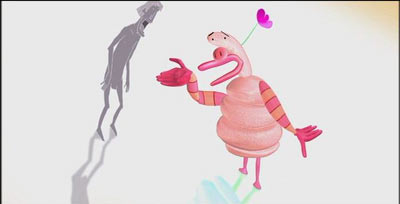
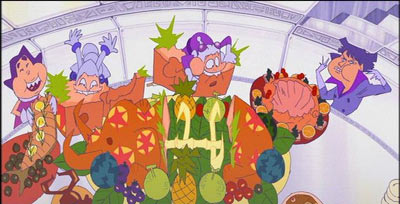
MIND GAME REVIEW
by Joshua Smith
Mind Game is perhaps the first true realization of Japanese psychedelia in an animated feature. Japan has long been the world’s leading producer of so-called psychedelic music, and it now seems that this concept of psychedelia is starting to make its appearance in animated film. It may seem odd to some that the notoriously anti-drug Japan could be so full of psychedelic art, but unlike the Western concept of psychedelia, the Japanese version exists independently of psychedelic drug use: Art by itself is believed to be powerful enough to induce profound experiences distinct from those that drugs can provide. So if the message of Mind Game is “you can do anything if you try,” it never says so explicitly. Instead, the film provides an exhilarating and completely absurd realization of sheer willpower, amplified and caricatured to the fullest extent allowed by animation, forcing the viewer to believe in this aforementioned message with absolute certainty. Watching Mind Game is a potentially life-changing experience, and although it will not appeal to a very large audience, at the very least it is destined to become one of those cult-classic masterpieces that only come around about once a decade.
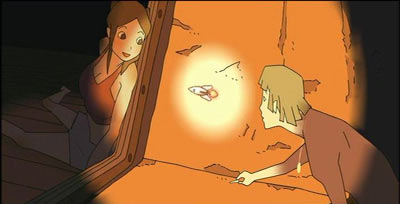
Providing a plot synopsis for Mind Game would be difficult, pointless, and full of spoilers, but to give some indication about the nature of this film, let me just say that the majority of its running time takes place inside the belly of a whale. Mind Game starts off somewhat like a conventional film; the beginning is slow and a little awkward. Some unconventional artistic choices – the unorthodox art design and the sporadic incorporation of live-action photography into the animation – are the only indications of the creativity that is to follow. The movie slowly builds up its power, demonstrating a higher concentration of innovative elements each passing minute. Still-framing through the movie might reveal individual drawings reminiscent of Aaron Springer’s Spongebob, Glen Keane’s Tarzan, Bill Plympton, modern Japanese iconic character design, and the drawings of a seven-year-old, possibly all within the same few seconds. On the other hand, drawings that might appear to be poorly conceived or crude as standalone images become beautiful in motion. In its second half, Mind Game becomes episodic: a showcase of experimental animation techniques in vignettes that are only tangentially related to the basic plot but serve the purpose of heightening the general spirit of the film. This leads up to the incredible climax: a ten-minute burst of raw energy that is sure to be remembered as a highlight of anime history.
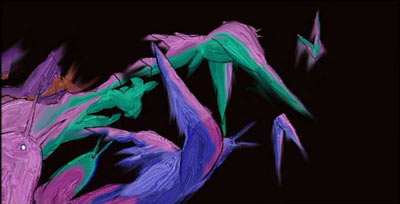
Mind Game is the feature directorial debut of Masaaki Yuasa, whose only previous directorial credit was the pilot to a series called Nanchatte Vampiyan (Vampiyan Kids). However, he has been working as an animation director since the early 90’s, which has allowed him to develop his own unique ideas about animation. Yuasa seems to come from the sect of Japanese animators who emphasize the importance of movement over the importance of individual drawings. He is fond of absurd camera angles and sweeping 3D camera moves in drawn animation, where maintaining the rules of perspective is less important than inducing a sense of vertigo. He understands how to maximize expressive possibilities by deforming the characters and taking them off-model, not simply by using the common Japanese method of symbolic off-model expressions and super-deformed characters, but by genuinely caricaturing actions and emotions in novel ways that you just don’t see in North American animation. He is clearly a fan of classic Hollywood cartoons, and would probably excel at emulating Tex Avery if he wanted to. Virtually every piece of animation I’ve seen where Yuasa is credited (even just as a key animator) retains a hint of his unique personal vision, often in the form of that friendly, innocent Japanese psychedelia that carries none of the negative connotations of Western psychedelia. After viewing some of Yuasa’s other work, like Cat Soup, Noiseman Sound Insect, the Nanchatte Vampiyan pilot, and a few episodes of Crayon Shin-chan, it becomes apparent that a masterpiece like Mind Game is not simply a one-time fluke. Yuasa seems to be blessed with boundless creativity that places him at the forefront of the next generation of Japanese animation masters.
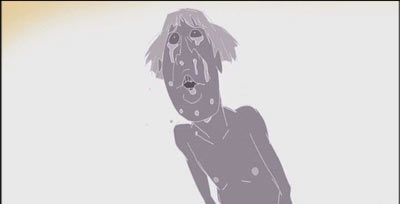

.png)